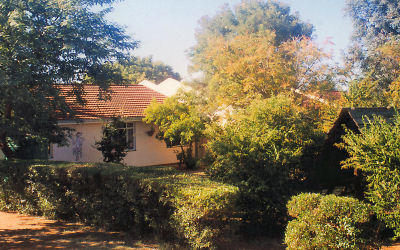SOS Children in Botswana
We have been working in Botswana since 1980. The numbers of AIDS orphans has risen in Botswana over the past decades, making the work of SOS Children increasingly important.
With SOS Children, you can help orphaned and abandoned children in Botswana by sponsoring a child:
Sponsor a child in BotswanaAn improving economy hides high poverty and inequality
Botswana is a middle-income country with a relatively large middle-class population. Despite its economic growth, Botswana still has high rates of poverty and inequality. It is estimated 23% of Botswana’s population live on less than US $1.25 a day. Minimum daily calorie requirements are missed or barely reached by 26% of the population. In rural areas, sanitation is of variable quality.
The prevalence rate of HIV/AIDS in Botswana is staggering: at 24.8%, Botswana has one of the highest rates in the world. This has huge human and economic effects on Botswana and means the life expectancy of the population has fallen in recent years. However, improvements have lowered mother-to-child transmission of HIV/AIDS and HIV treatment programmes in Botswana are highly effective, providing hope for the future.
Children in Botswana
- UNICEF estimates 93,000 children have been orphaned in Botswana due to HIV/AIDS. In total there are approximately 130,000 orphans in the country.
- Due to the HIV/AIDS pandemic, many children lose their parents and more and more children are taking on responsibility for their families. This means children do not get the childhood and education they need to get themselves out of the cycle of poverty.
- Due to improvements in public health, more young children are surviving. The under-five-mortality rate has more than halved since 2002 and now stands at 40 per 1,000 births.
Our charity work in Botswana
Tlokweng
SOS Children began working in Botswana in 1986 when we opened a community in Tlokweng in a suburb of the capital, Gaborone, about 7km from the city centre. The Village has 16 family houses, and each family has between ten and twelve children whose ages range from just a few days to around 16 years. Children attend the local government schools, all within walking distance. At around 16 years old, the children move into one of the three youth houses where they take their first guided steps towards self-sufficiency. An SOS Vocational Training Centre teaches tailoring, welding and carpentry to give them the best possible chance of earning a living when they are ready to leave the village. Tlokweng also has a farm which provides most of the Village's food requirements as well as further vocational training opportunities.
Francistown
SOS Children's Village Francistown was built in 1998. About 400 km north of Gaborone, near the border with Zimbabwe, it has 16 family houses and an SOS Nursery which, like all SOS nursery schools and schools, is attended by children from the surrounding community as well as from the SOS Children's Village.
Serowe
SOS Children's Village Serowe opened in 2009 and comprises twelve family houses, a small clinic and an SOS nursery. A house for the village director, staff houses, an administration and service area and a multipurpose hall are also included. SOS Children's Village Serowe offers a new home to up to 120 children.
Aids Orphans in Botswana
See also Aids Orphan Projects in Botswana, Africa.
 Local Contact
Local Contact
SOS Children's Village Association Botswana
Southring Road
Plot 2852
PO Box 30396
Gaborone
Botswana
Tel: +267/39 53 220
Fax: +267/395 32 20
e-mail: soscv@info.bw

 Return to Schools Wikipedia Home page…
Return to Schools Wikipedia Home page…
